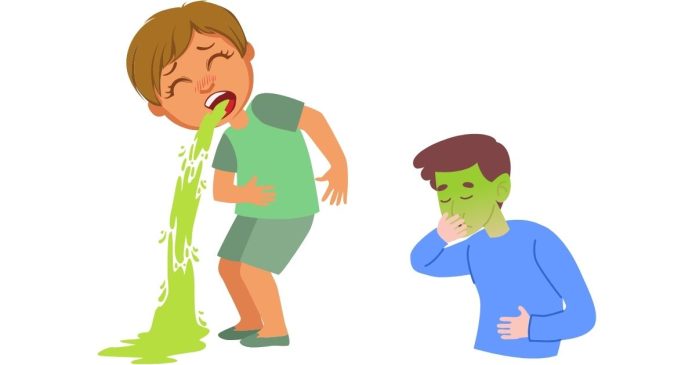A hangover is one of the most unpleasant consequences of overindulging in alcohol, and many people have experienced the feeling of nausea, headaches, dehydration, and fatigue that accompany it. For some, vomiting is an unfortunate but common part of the hangover experience. But why does throwing up seem to help alleviate some of the symptoms of a hangover? Does it actually provide any benefits, or is it just a temporary relief?
The Science of a Hangover
To understand why throwing up might feel like it helps with a hangover, it’s important to first understand what happens to your body when you drink too much alcohol. A hangover is caused by several factors, including:
- Dehydration: Alcohol is a diuretic, meaning it increases urine production, which leads to dehydration.
- Toxin Buildup: The body metabolizes alcohol into acetaldehyde, a toxic substance that can cause inflammation, nausea, and headaches.
- Electrolyte Imbalance: Drinking alcohol can lead to the loss of important minerals like sodium, potassium, and magnesium, leading to symptoms like muscle cramps and fatigue.
- Gastric Irritation: Alcohol increases the production of stomach acid, which can irritate the lining of the stomach and lead to nausea or vomiting.
- Blood Sugar Imbalance: Alcohol can cause a drop in blood sugar levels, contributing to symptoms like dizziness, weakness, and fatigue.
Why Throwing Up Might Help
For some people, throwing up during a hangover may seem to offer temporary relief. While it doesn’t cure the hangover or address all the underlying issues, there are a few reasons why vomiting might help reduce certain symptoms:
- Clearing the Stomach: If you’re feeling nauseous due to a large quantity of alcohol still in your stomach, throwing up can help expel some of that alcohol before it’s absorbed by your body. This might reduce further nausea and irritation in your stomach. It’s important to note that this doesn’t get rid of all the alcohol or toxins in your system, but it can provide short-term comfort by reducing the immediate irritants.
- Reducing Gastric Irritation: Alcohol is highly acidic, and excessive drinking can irritate the stomach lining, causing nausea. By vomiting, your body may relieve some of the irritation in the stomach. However, this is only temporary, and the stomach lining may still be inflamed, so the relief is short-lived.
- Stimulating the Body’s Natural Defense Mechanisms: Vomiting is the body’s way of ridding itself of toxins or irritants. In the case of alcohol, it can be a defensive response to remove substances that are making you feel ill. While it may not cure the hangover, vomiting can temporarily lessen some of the discomfort by eliminating some of the alcohol and related toxins still in the stomach.
- Providing Psychological Relief: Often, the nausea and discomfort that come with a hangover can be overwhelming. The act of throwing up may provide a sense of immediate relief, even if it doesn’t change the underlying causes of the hangover. This could be due to the reduction of the unpleasant sensations of fullness, nausea, or bloating in the stomach.
The Risks of Vomiting During a Hangover
While throwing up might offer temporary relief for some, it’s important to understand that it doesn’t address the root causes of a hangover and can actually have risks:
- Dehydration: Vomiting can make dehydration worse by further depleting the body of fluids. This can intensify hangover symptoms such as headaches and fatigue.
- Electrolyte Loss: Vomiting can lead to the loss of important electrolytes, which can cause muscle cramps and exacerbate the symptoms of a hangover.
- Stomach Irritation: Vomiting can irritate the stomach further, causing additional discomfort and potentially even leading to gastritis (inflammation of the stomach lining) if done repeatedly.
- Choking Risk: Vomiting while lying down or in an unsafe position can increase the risk of choking, which is especially dangerous after excessive alcohol consumption when the body’s reflexes may be impaired.
Better Ways to Manage a Hangover
While vomiting may offer temporary relief, it’s not the ideal solution for managing a hangover. Here are some healthier ways to cope with the symptoms:
- Hydration: Drinking plenty of water or electrolyte-rich drinks like sports drinks can help rehydrate the body and restore vital minerals lost during drinking.
- Rest: Giving your body time to recover is essential. Sleep can help alleviate fatigue and allow the body to metabolize the alcohol and toxins more effectively.
- Eating Nutritious Foods: Eating foods like bananas, soup, or eggs can help replenish lost nutrients and provide comfort to an upset stomach.
- Pain Relief: Over-the-counter pain relievers like ibuprofen or aspirin can help ease headaches and body aches, but be cautious not to take them on an empty stomach or with alcohol in your system, as they can irritate your stomach.
- Ginger or Peppermint Tea: These can help soothe an upset stomach and reduce nausea without the need for vomiting.
Throwing up can provide some temporary relief from a hangover, especially if the stomach is still full of alcohol and toxins, but it’s not a solution to the underlying causes of the hangover. It may help reduce nausea or gastric irritation for a short period, but it doesn’t speed up the body’s recovery process or address dehydration, toxin buildup, or electrolyte imbalances. The best way to recover from a hangover is through proper hydration, rest, and balanced nutrition, allowing your body to naturally heal and metabolize the alcohol. Avoiding excessive drinking in the first place is, of course, the most effective strategy for preventing a hangover altogether.



